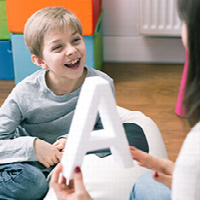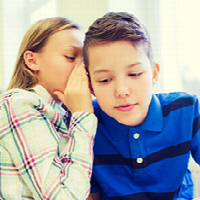A lot of parents struggle when raising kids with ongoing challenging behaviors. They want what’s best for their children and have searched high and low for answers. Instead, they have a handful of diagnoses and little hope for the future. Besides feeling exhausted, they also feel like they failed their child.
I’ve been there. Our third child did not respond to any of the parenting strategies that had worked for our first two. Instead, his behavior got more aggressive. I dreaded every day because I knew it would be a never-ending battle.
The good news is that we found some answers. Our days aren’t perfect, but I’m confident in how we’re parenting. Ty is also thriving and happy.
Here’s what I wish I would have known.
Stress Affects Brain Development
Stress can come in the form of maternal stress during pregnancy, a difficult labor or delivery, early hospitalizations, or separation from a primary caregiver. There are also obvious stressors such as abuse, neglect, and trauma. These experiences alter a child’s brain chemistry and present as challenging behaviors. [1]
These stressors affect kids who come into our families by birth or adoption. When our son came to us, he had experienced various forms of stress. We just focused on the fact that he had never lived in an institution, which was positive but didn’t negate his other experiences.
Altered Brains React Differently
When a stress-affected brain processes information, it incorrectly thinks a situation is more scary than it is. Being told “No” to a cookie or a playdate might literally register as a life-threatening situation. Enter an aggressive tantrum.
Kids who have experienced prolonged stress or trauma may have more challenging behaviors. Additionally, their hard behaviors are harder to redirect and correct.
Brains are Resilient
The good news is that there are simple tools parents can implement at home to teach their child’s brain to react more appropriately. We tried punishments for bad behaviors, but things got worse. Instead, focus on teaching your child’s brain new habits. Instead of throwing a tantrum, she can ask for a compromise. Instead of demanding food, he will learn that respectful words hold more power.
Before you know it, you’ll feel your joy returning. Parenting will still be hard, but you will be confident that you’re moving in the right direction. You’ll even get to have more fun!
You've been there. A grocery store meltdown, a scathing remark that you're the worst mom, or defiance when you're at the end of your rope. You feel like you want the floor to swallow you up before you burst into tears. Melissa’s been there, too. Heck, she still finds herself there. We're all human.
However, parenting kids by birth and adoption and educating them in private, public, and homeschool has led her to learn a lot about what creates thriving parent-child relationships...and what doesn't. She is a parent coach and co-founder of www.theadoptionconnection.com, resources by and for adoptive moms. You can grab a free Guide to Understanding Challenging Behaviors at her personal website, www.thecorkboardonline.com.
Author:
Melissa is an adoptee and adoptive mom. Visit Melissa's website here.












